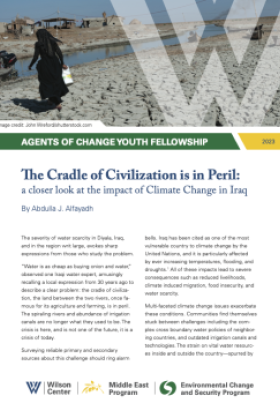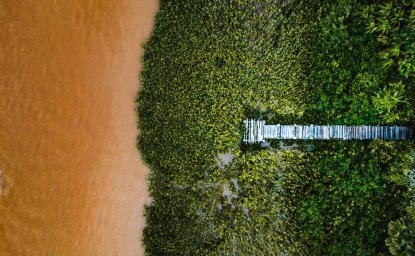The Cradle of Civilization in Peril: A Closer Look at the Impact of Climate Change in Iraq



The severity of climate impacts in Iraq—the cradle of civilization, the land between the two rivers—is not a crisis of the future. It is a crisis of today. The UN has named Iraq as the fifth most vulnerable country to climate change by the United Nations, and this nation’s climate challenge is a key part of the larger problems faced by the wider MENA region.
Through an assessment of published literature and traditional and social media in Iraq—as well as dialogue with local and international experts—this paper reveals the interaction of climate vulnerability and communal cohesion, especially in communities coping with ruptured social ties due to cycles of conflict past and present.
Looking at how these challenges play out in the Diyala governorate reveal how issues of competition over natural resources, migration, strained public services, and intra-state water allocation drive climate vulnerability and instability in Iraq. Indeed, these is an increasing consensus that climate change acts as a “threat multiplier” to exacerbate conflict and fragility— both in Diyala and elsewhere in Iraq.
Author

Program Coordinator, United Nation’s Iraq Mission

Middle East Program
The Wilson Center’s Middle East Program serves as a crucial resource for the policymaking community and beyond, providing analyses and research that helps inform US foreign policymaking, stimulates public debate, and expands knowledge about issues in the wider Middle East and North Africa (MENA) region. Read more


Environmental Change and Security Program
The Environmental Change and Security Program (ECSP) explores the connections between environmental change, health, and population dynamics and their links to conflict, human insecurity, and foreign policy. Read more




